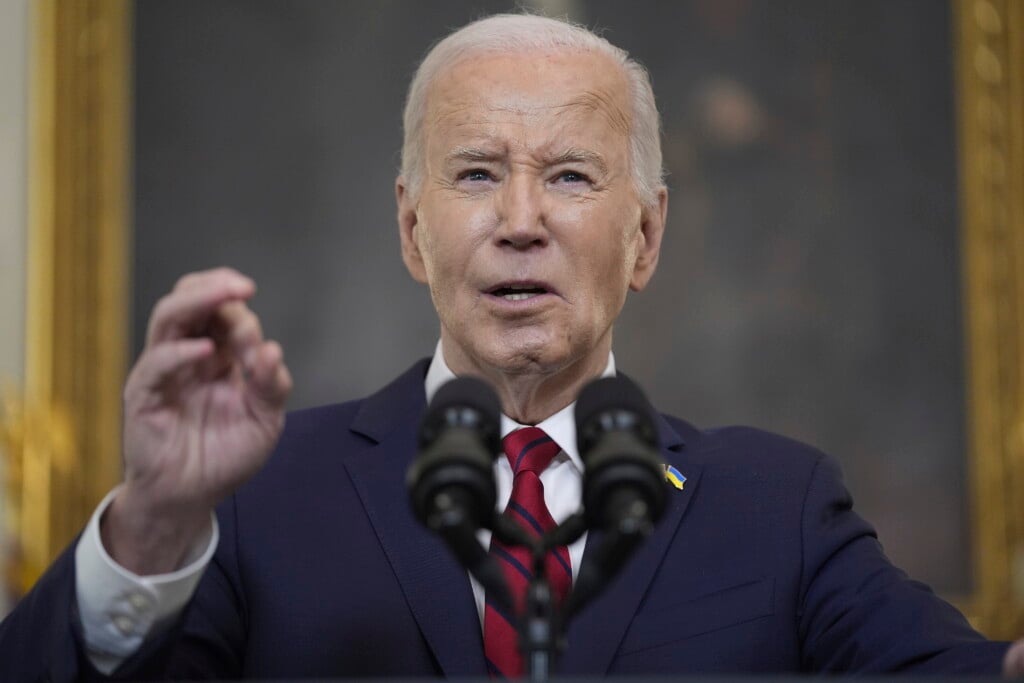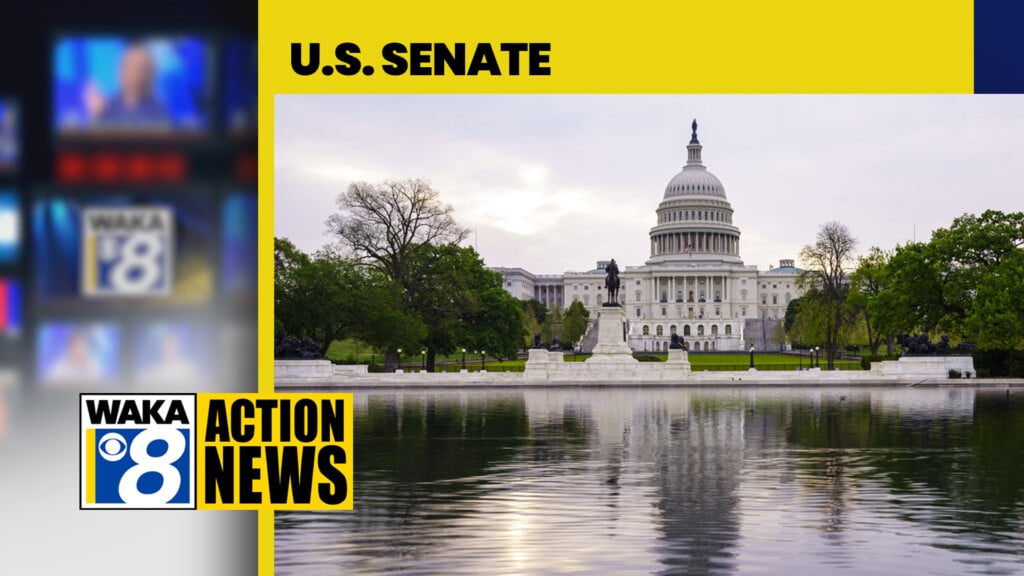Appeals court lowers bond due in Trump fraud case, sets new deadline

Former President Donald Trump speaks to the media at a Washington hotel, Tuesday, Jan. 9, 2024, after attending a hearing before the D.C. Circuit Court of Appeals at the federal courthouse in Washington. (AP Photo/Susan Walsh)
The New York State Court of Appeals ruled today that former President Donald Trump does not have to come up with $464 million to appeal the judgment against him in his civil fraud trial, and must only provide a bond in the amount of $175 million.
Under the ruling, Trump has 10 days to come up with the $175 million bond. In addition, the appeals court stayed the three-year bars against Trump from applying for loans from New York financial institutions, the two-year prohibition against Donald Trump Jr. and Eric Trump from serving as officers or directors in New York companies and the permanent bar against former Trump Organization CFO Allen Weisselberg and controller Jeff McConney from serving in financial control positions in New York businesses.
The court order is a significant victory for Trump as he defends the real estate empire and continues his presidential bid.
The development came just before New York Attorney General Letitia James, a Democrat, was expected to initiate efforts to collect the judgment.
Trump, who was attending a separate hearing in his criminal hush money case in New York, posted on his Truth Social platform that he would post a bond, securities or cash to cover the $175 million sum.
“This also shows how ridiculous and outrageous” trial Judge Arthur Engoron’s judgment was, Trump wrote.
James’ office, meanwhile, noted that the judgment still stands.
“Donald Trump is still facing accountability for his staggering fraud. The court has already found that he engaged in years of fraud to falsely inflate his net worth and unjustly enrich himself, his family, and his organization,” the office said in a statement.
Trump’s lawyers had pleaded for a state appeals court to halt collection, claiming it was “a practical impossibility” to get an underwriter to sign off on a bond for such a large sum, which grows by the day because of interest. The Trump attorneys had earlier proposed a $100 million bond, but an appellate judge had said no late last month.
The ruling was issued by the state’s intermediate appeals court, the Appellate Division of the state’s trial court, where Trump is fighting to overturn a judge’s Feb. 16 finding that he lied about his wealth as he built the real estate empire that launched him to stardom and the presidency.
After James won the judgment, she didn’t seek to enforce it during a legal time-out for Trump to ask the appeals court for a reprieve from paying up.
That period ended Monday, though James could have decided to allow Trump more time.
James told ABC News last month that if Trump doesn’t have the money to pay, she would seek to seize his assets and was “prepared to make sure that the judgment is paid.”
She didn’t detail the process or specify what holdings she meant, and her office has declined more recently to discuss its plans. Meanwhile, it has filed notice of the judgment, a technical step toward potentially moving to collect.
Seizing assets is a common legal option when someone doesn’t have the cash to pay a civil court penalty. In Trump’s case, potential targets could include properties such as his Trump Tower penthouse, aircraft, Wall Street office building or golf courses.
The attorney general also could go after his bank and investment accounts. Trump maintained on social media on Friday that he has almost $500 million in cash but intends to use much of it on his presidential run. He has accused James and New York state Judge Arthur Engoron, who’s also a Democrat, of seeking “to take the cash away so I can’t use it on the campaign.”
One possibility would be for James’ office to go through a legal process to have local law enforcement seize properties, then seek to sell them off. But that’s a complicated prospect in Trump’s case, noted Stewart Sterk, a real estate law professor at Cardozo School of Law.
“Finding buyers for assets of this magnitude is something that doesn’t happen overnight,” he said, noting that at any ordinary auction, “the chances that people are going to be able to bid up to the true value of the property is pretty slim.”
Trump’s debt stems from a months-long civil trial last fall over the state’s allegations that he, his company and top executives vastly puffed up his wealth on financial statements, conning bankers and insurers who did business with him. The statements valued his penthouse for years as though it were nearly three times its actual size, for example.
Trump and his co-defendants denied any wrongdoing, saying the statements actually lowballed his fortune, came with disclaimers and weren’t taken at face value by the institutions that lent to or insured him. The penthouse discrepancy, he said, was simply a mistake made by subordinates.
(Copyright 2024 The Associated Press contributed to this report. All rights reserved. This material may not be published, broadcast, rewritten or redistributed without permission.)






